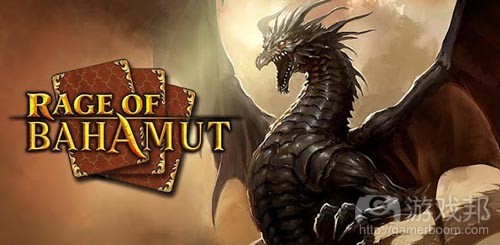分析开发商与发行商之间分分合合的关系
作者:Keith Andrew
“在获得如此巨大的成功后,Cygames会不会在想‘我们是否应该自主发行?如果没有我们《Rage of Bahamut》也不会成功。’”
这是DeNA的Barry Dorf在2013年GDC座谈会时所开的一个小玩笑。这次座谈会最初的理念是分析发行商在手机领域影响力的变化,以及他们在游戏产业中是否还有立足之地。
当然了,大家的观点各不相同。
根据Dorf,这几年发行商的角色发生了巨大的改变,“我们不再是传统的发行商,”而只是作为巨头公司的“合作伙伴”。
合作伙伴而非发行商
Dorf说道:“有些开发商需要资金,有些需要专业知识,有些想要进入亚洲市场,有些想要通过帮助而获得更多用户。可以说不同开发商的需求各不相同。”
“如果你只想获得用户,那么请另找高人。我们希望的是展开全面的合作—-我们所犯的错误你也有可能会遇到,所以我们知道什么可行而什么又不可行。”
他也补充道,Cygames的《Rage of Bahamut》便是一个经典的例子,即DeNA帮助他们成功发行了这款游戏。
“我们可以基于盈利角度去完善一款游戏并将其带到排行榜的最高位置。”
但是在成功之后,开发商们是否还会对发行商感兴趣呢,或者说他们之间的关系也算走到了尽头?
分裂
根据Large Animal Games的Wade Tinney,开发商们是基于不同目标和动机去选择发行商,而这也将在两方之间创造一个巨大的鸿沟。
Tinney说道:“没有人的激情能比得上那些倾注了全部心血于游戏中的人,我想这也是开发商们真正担心的。”
“开发商们总是认为发行商会为了其它大项目而抛弃他们。实际上,真正维系起双方之间关系的唯一方法便是,发行商最好在一开始便投资于开发商的游戏中。”
另外一个问题则是,即使获得了巨大成功的开发商们也有可能在发行商转向其它工作室被抛下。
掌握自己的命运
Jawfish Games的Tadhg Kelly说道:“对于许多开发商们来说,谁拥有用户是一个很大的问题——他们都希望能够掌握自己的命运。”
“手机领域的开发商们需要拥有自己的玩家,市场营销故事和身份。这比过去任何时候还重要。”
Kelly表示,PopCap便是成功做到这一点的开发商。如今该公司已经被艺电所收购,但是因为之前PopCap凭借着强大的IP而为自己树立起不错的名声,所以消费者们都非常信任它。
而GREE也是如此去推广自己的方法。
GREE的Jim Ying说道:“我们的目标是投资真正的团队。”
“我们并不在乎面对怎样的游戏,而更加在乎面对怎样的合作者。”
“可以说我们的合作就像结婚一样。一加一等于二不是吗?这并不是关于到处走走那么简单,我们需要真正分享第一方工作室所使用的工具,分析以及市场营销软件工具开发包等等。”
但这真的是一种新方法吗?而不是发行商在说大话?
Kelly回应道:“我并不是想冒犯发行商们,我同意你们都是非常棒的合作对象。但是我最近所听说的内容与之前听说的并没有多大差别。”
“开发商与发行商之间之所以会分裂是因为发行商总是倾向于建立长期策略,而这一点并不符合开发商的需求,所以在整个过程中随时有可能出现开发商被收购或摧毁的情况。”
(本文为游戏邦/gamerboom.com编译,拒绝任何不保留版权的转载,如需转载请联系:游戏邦)
#GDC 2013: Is Rage of Bahamut leading the charge for game publishing 2.0?
by Keith Andrew
“Do you think Cygames are sitting there thinking now, after all the success they’ve had, ‘oh, we should have self published? Rage of Bahamut would be nowhere without us.”
That was the slightly tongue-in-cheek boast of DeNA’s Barry Dorf at the start of a lively panel at GDC 2013.
The original idea behind the debate was to analyse the role of the ‘new wave’ of publishers hitting the mobile scene, and whether they still have a place in the industry.
Naturally, opinion was divided.
According to Dorf, the role of the publisher has indeed evolved in recent years – “we’re not a traditional publisher,” he added, instead referring to the Japanese giant as a “partner” – but the benefits it can deliver for developers has not.
Partners, not publishers
“Some developers want funds, some want expertise and knowledge, some want access to Asia, some want help getting users…it changes from developer to developer,” offered Dorf.
“If you just want users and nothing else, however, look elsewhere. We want to partner with you across the board – we’ve made all the mistakes you can make, so we know what works and what doesn’t.”
Cygames’ Rage of Bahamut, he added, was an example of when DeNA’s expertise had paid off in spectacular fashion.
“We can take a game and improve it from a monetisation standpoint and take it to the top of the charts.”
But once that chart success has faded, will the publisher still be interested in the developer, or is it a relationship destined to end in divorce?
Nasty split
According to Wade Tinney of Large Animal Games, the objectives and motivations that drive a developer are very different to those that drive a publisher, and that can create a huge split between the two long term.
“No-one is going to have the same passion for a game as someone who has poured their heart and soul into it, and I think that’s what developers worry about,” said Tinney.
“They think publishers will drop them for the next big thing. In fact, the only way to truly align everyone’s interests is for the publisher to invest in the developer’s game from the beginning.”
Another problem cited was that, even developers who enjoy huge amounts of success with a publisher can be left high and dry when the folks they’re connected with move on to other jobs.
Clash of clans
“The question of who owns the user is a big question for a lot of developers – they want to be the masters of their own destiny,” said Tadhg Kelly of Jawfish Games.
“Developers need to have their own fans, marketing story and identity if you like within the mobile space. It’s more important now than ever.”
An example of a developer that has managed to pull this off, Kelly suggested, is PopCap. The firm may now be tied to EA, but consumers “understand what PopCap is” because it had managed to make a name for itself with strong IP long before EA came along.
As a result, consumers see Bejeweled and Plants vs. Zombies as PopCap games, even now. They’re not seen as EA titles, and that’s why PopCap survives.
Team player
Maybe, then, publishers shouldn’t invest in specific titles or franchises. They should just invest in people, and let them follow their own path and take ownership of their own IP.
That, essentially, is how GREE pitches its approach.
“Our focus is investing in the actual team,” said GREE’s Jim Ying.
“The game you’re be working with us on almost doesn’t matter. We’re more interested in the people.
“What we do is a lot like getting married. We see it as one plus one equals two, right? It’s not about dropping in here and there, but actually sharing tools, analytics, and marketing SDKs that all our first party studios use.”
But is this really a new approach? Is talk of a new approach from publishers actually just a load of hot air?
“No offence to the publishing guys here, I’m sure you’re all great people to work with,” replied Kelly, “but what I’m hearing today doesn’t really sound any different to tall the stuff I’ve heard before.
“The reason why divorces tend to happen is that publishers tend to have long term strategies that don’t fit with what the developer needs, so the developer tends to get bought or destroyed along the way.”(source:pocketgamer)








































 闽公网安备35020302001549号
闽公网安备35020302001549号